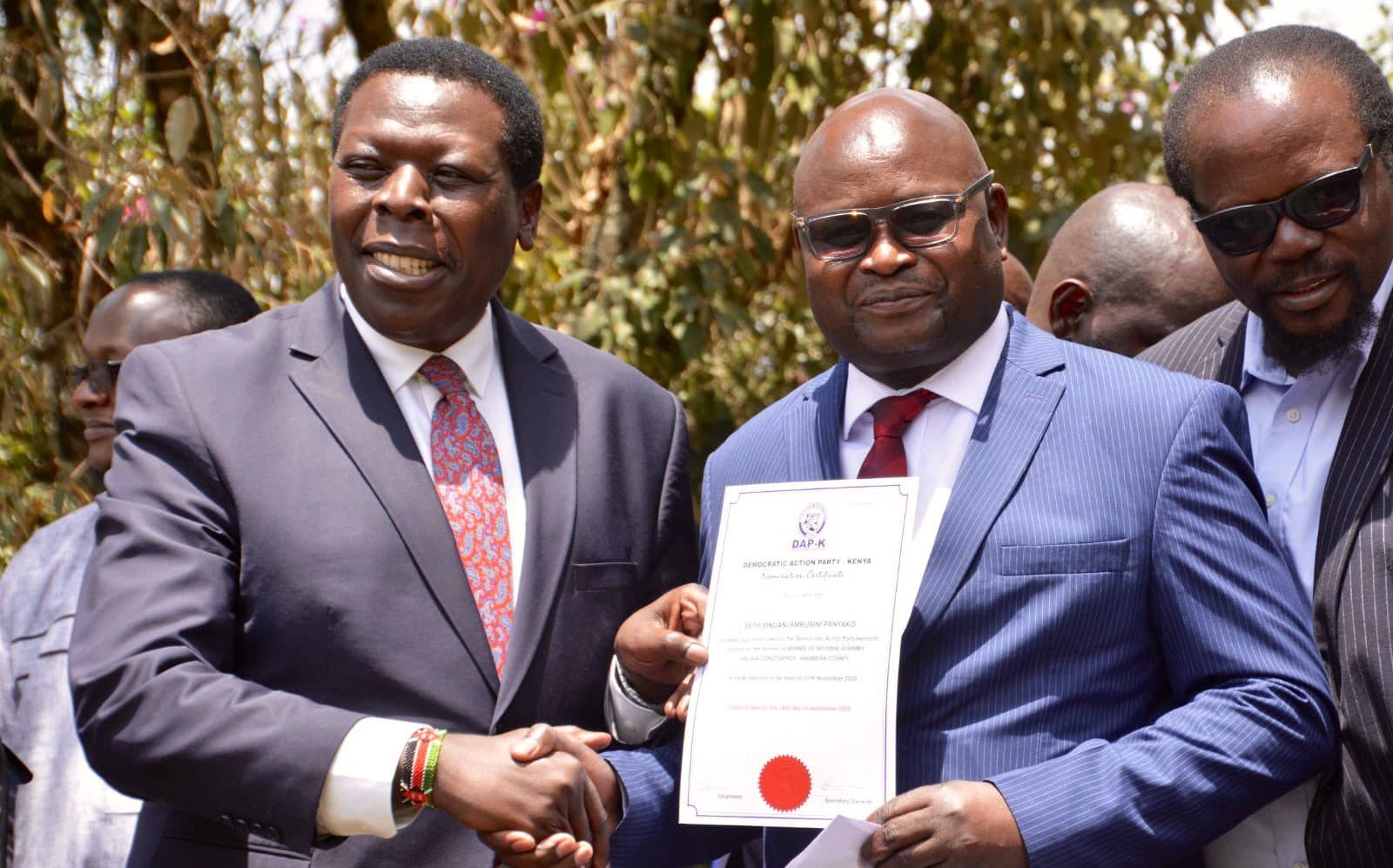We're loading the full news article for you. This includes the article content, images, author information, and related articles.
DAP leader Eugene Wamalwa and Senator Boni Khalwale are set to jointly campaign for Seth Panyako in the upcoming Malava by-election, signaling a potential shift in regional political alliances.

Democratic Action Party (DAP) leader Eugene Wamalwa and Kakamega Senator Boni Khalwale are scheduled to campaign together for Kenya National Union of Nurses (KNUN) Chair Seth Panyako in the Malava by-election, slated for November 27, 2025. This unexpected alliance brings together leaders from different political factions to support a single candidate in a crucial local contest.
The joint campaign is set to commence on Saturday, October 4, 2025, at a bullfighting event at Mahira Grounds in Malava. The event, a traditional cultural gathering in Kakamega, is expected to draw a significant crowd, providing a platform for Wamalwa and Khalwale to endorse Panyako's bid for the Malava seat.
The Malava by-election has garnered considerable attention due to its potential implications for regional political alignments. While the specific reason for the by-election was not provided in the input, such contests often arise from vacancies due to resignations, deaths, or successful election petitions. The involvement of prominent national figures like Wamalwa and Khalwale elevates the profile of the race, making it a barometer for shifting political allegiances ahead of the next general election.
Political analysts suggest that this development could significantly influence near-term public debate and policy execution in the region. The collaboration between Wamalwa, a key figure in the Azimio la Umoja One Kenya Coalition, and Khalwale, a vocal leader within the Kenya Kwanza Alliance, presents a unique political dynamic. Their joint endorsement of Panyako, an influential trade unionist, could consolidate support across traditional political divides.
Stakeholders are urging clarity on the timelines, costs, and safeguards associated with the by-election process. The Independent Electoral and Boundaries Commission (IEBC) is responsible for overseeing the by-election, ensuring a fair and transparent process. The outcome in Malava could offer insights into voter sentiment and the effectiveness of cross-party collaborations in local elections.
The alliance, while potentially beneficial for Panyako's campaign, also carries risks. It could be perceived as opportunistic by some voters, or it might face resistance from party loyalists who prefer strict adherence to coalition lines. The long-term implications for both DAP and the broader political landscape in Kakamega remain to be seen, particularly how this collaboration might affect future political realignments and power-sharing arrangements.
Observers will be keenly watching the level of public reception to this unusual political alliance. The turnout at the Mahira Grounds event and the subsequent momentum generated for Panyako's campaign will be critical indicators. Furthermore, the reactions from other political aspirants and parties in the Malava by-election will shed light on the evolving political strategies in the region. The by-election's outcome will also be a test of the influence of individual leaders transcending party lines in local electoral contests.
Keep the conversation in one place—threads here stay linked to the story and in the forums.
Sign in to start a discussion
Start a conversation about this story and keep it linked here.
Other hot threads
E-sports and Gaming Community in Kenya
Active 9 months ago
The Role of Technology in Modern Agriculture (AgriTech)
Active 9 months ago
Popular Recreational Activities Across Counties
Active 9 months ago
Investing in Youth Sports Development Programs
Active 9 months ago
Key figures and persons of interest featured in this article